News
Check out all the ways Better Sessions is educating the community and stay tuned for more articles, workshops, and presentations near you!
Highlights from Our Balance Better Parent Pilot Program
By Lisa Podell | October 28, 2025 | Categories: Workshops
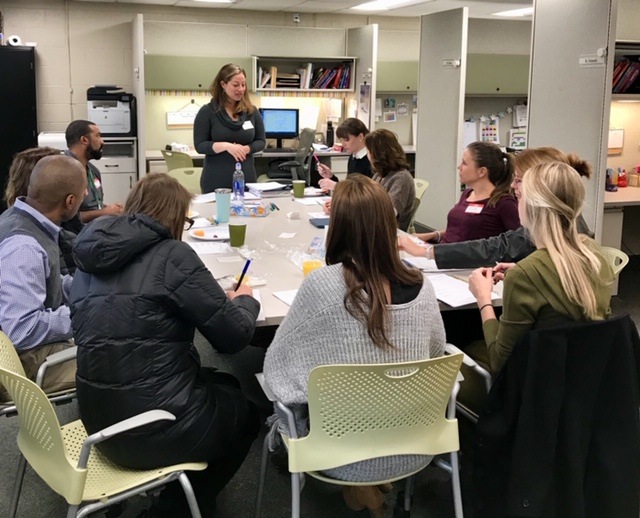
The Balance Better Parent Meet-Up was a weekly gathering that allowed parents to practice tools to step back, giving their teens the opportunity to step up and build executive functioning skills. In a supportive, non-judgmental setting, participants explored strategies for building consistency, using external systems, and staying connected, all while realizing they are not alone. Parents left feeling more confident in their guidance and empowered to support their teens’ growth.
Better Sessions Partners with Growing Our Girls to Facilitate a Mother–Daughter Retreat
By Lisa Podell | September 15, 2025 | Categories: Workshops
This past weekend, Better Sessions partnered with Growing Our Girls to host a meaningful Mother–Daughter Retreat for teen girls and their moms.
The day was filled with opportunities to deepen connection, spark creativity, and strengthen communication. Through interactive workshops, reflective exercises, and creative expression, mothers and daughters built memories that will last far beyond the retreat.
Stay tuned for more offerings from Better Sessions and Growing Our Girls to help you connect with your child in meaningful and lasting ways!



Better Sessions Brings Superhero Workshop to Charlotte Family Housing
By Lisa Podell | August 13, 2025 | Categories: Workshops
This summer, Better Sessions was thrilled to partner with Charlotte Family Housing—an organization dedicated to empowering working families experiencing homelessness to achieve lifelong self-sufficiency through shelter, housing, supportive services, and advocacy. At their youth summer camp, our Superhero Workshop brought a burst of creativity, confidence, and fun as campers discovered their own “superpowers” and designed unique superhero identities. If you are interested in getting involved, please visit www.charlottefamilyhousing.org
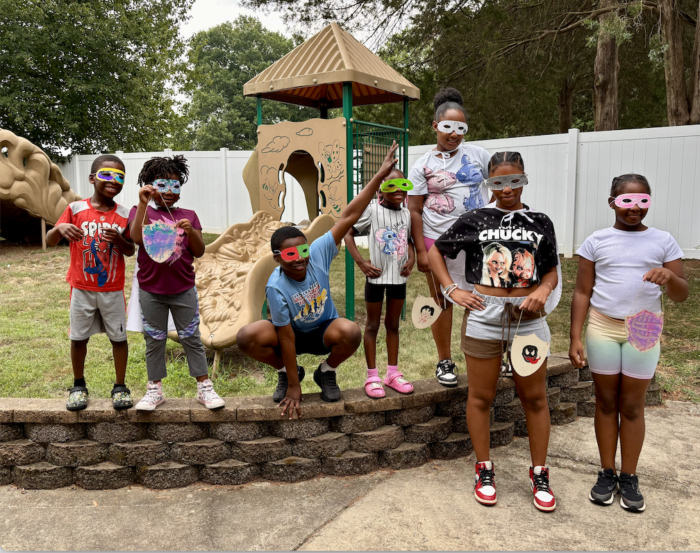
Lisa presents on Executive Functioning Skills and Healthy Behaviors at Salisbury Academy
By Lisa Podell | March 23, 2024 | Categories: Workshops
It was a pleasure speaking to this supportive community of educators and parents about identifying when your child needs additional support with executive functioning skills and practical ways to improve at home and in the classroom.
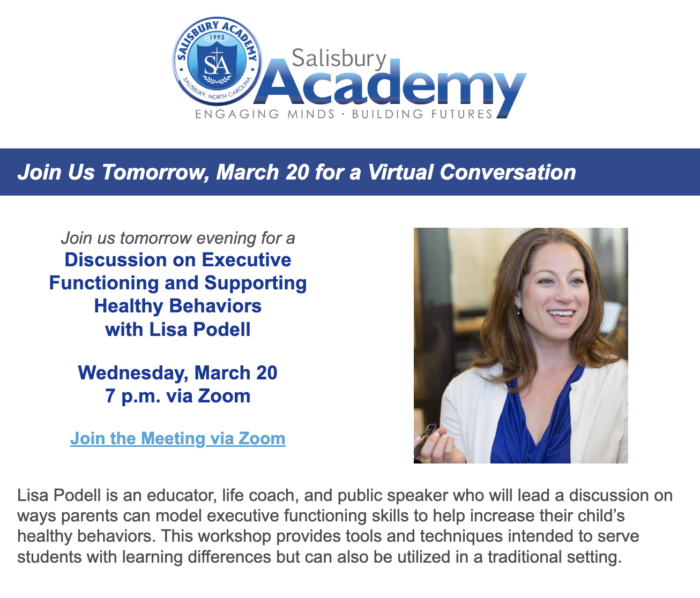
Lisa Podell Presents at The Rankin Insitute
By Lisa Podell | February 14, 2023 | Categories: Workshops
It is an honor to speak at The Rankin Institute each and every year. The theme remains the same: Ways parents can model executive functioning skills for their children. However, each year I update and refine the details based on what I’ve learned as an educator and a parent. This year I added a new segment on how to get present before jumping into a task that requires focus, patience, and attention, like this 90-minute talk I was giving to 50+ participants.
The next time you or your child are transitioning from one task to the next and it’s important to bring your full attention, consider the following:
- How can I eliminate distractions in my physical space? (silence your phone, close your laptop, and distance yourself from other people’s conversations)
- How can I eliminate distractions in my mental space? (write down the ideas or stressors that are cluttering up your mind)
- Increase focus (3 deep breathes, jumping jacks, push-ups, something that gets you out of your head and into your body: increase that heart rate!)
- Create calm (3 deep breathes, 1-2 stretches or yoga poses, listen to relaxing music)
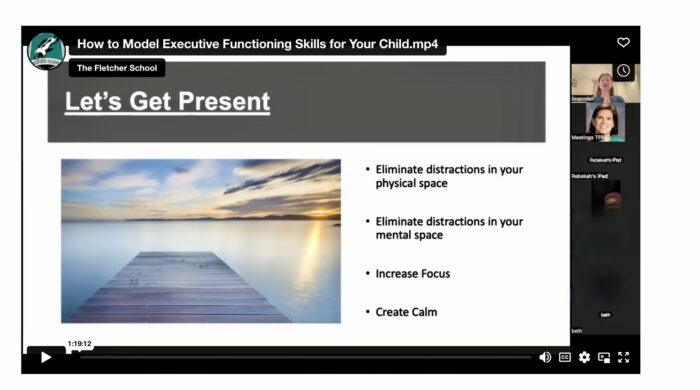
Good Habits for the New School Year
By Lisa Podell | August 6, 2020 | Categories: Interviews, Press
Integrate the skills required to be successful at school, such as time management and planning, into your child’s home routine so that they are exercising these muscles on a daily basis.
Better Sessions Featured in Charlotte Parent Magazine
By Lisa Podell | August 2, 2020 | Categories: Press
Strategies for a strong start to the school year.
Better Sessions at The Rankin Institute
By Lisa Podell | January 23, 2020 | Categories: Workshops
Lisa Podell, owner of Better Sessions spoke to 60+ parents and educators on the topic of How to Model Executive Functioning Skills for your Child. Over the course of the evening, parents learned how to expand their toolkit with new ways to successfully communicate with their child, integrate executive functioning skills into their daily tasks and create customized goals to experience immediate, positive changes.
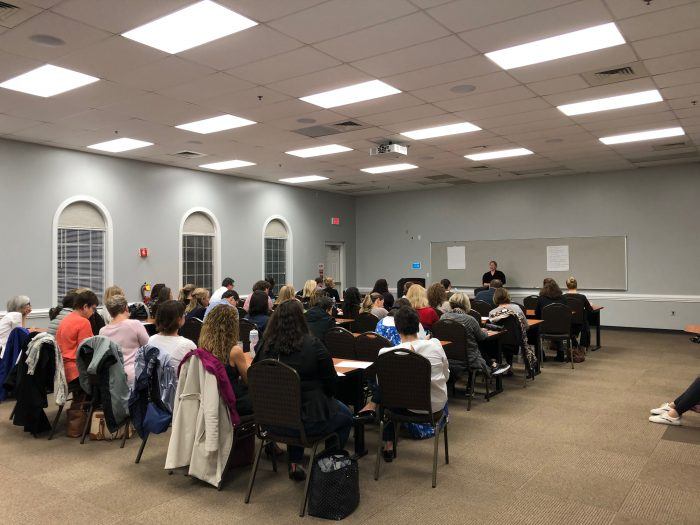
Parents and Teachers Participate in Better Sessions Workshop at The Rankin Institute.
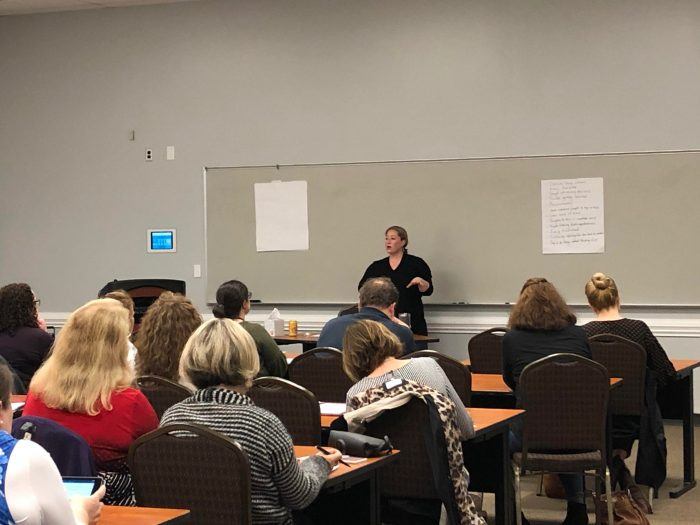
Lisa Podell, Owner of Better Sessions
Sustain Family Goals
By Lisa Podell | January 10, 2020 | Categories: Interviews
January is the perfect time to start fresh and introduce goal setting to help set your child up for a successful winter season.
Increase your Child’s Independence
By Lisa Podell | November 5, 2019 | Categories: Interviews
Including your child on a shopping trip for school supplies may take additional patience and time but practicing this independence now is worth the investment so that your child knows how to partake in these crucial skills in the future.
